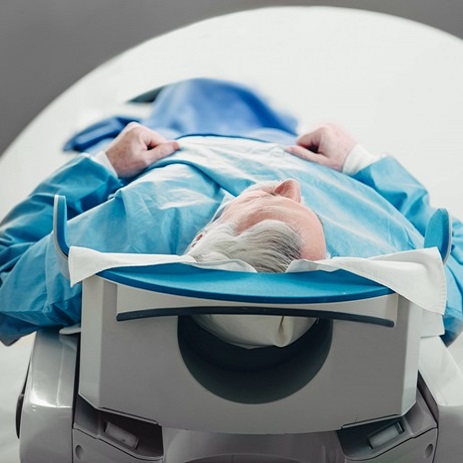Lung Cancer Treatment in New Jersey
Lung cancer including small cell and non-small cell lung cancers are among the most complex tumors to treat. Our top thoracic specialists will carefully evaluate your health and customize your treatment to provide you with the most advanced, effective and least invasive treatments available, based on the stage and biology of your cancer. Treating lung cancer requires comprehensive care from a variety of specialists.
Collaborative Care from Leading Lung Cancer Specialists
At Hackensack Meridian Health your care team includes thoracic surgeons; thoracic medical oncologists who oversee chemotherapy, immunotherapists, radiation oncologists; pathologists; radiologists; nurses; social workers; and others with expertise in the care of people with lung cancer. We don’t just care for you, but about you. In fact, according to Press-Ganey surveys, 99 percent of our patients report satisfaction with their care.
What Treatment Options are Available for Lung Cancer?
Your treatment plan is individualized. It is based on a number of factors, including type and stage of lung cancer, and your health status. It is important to discuss the goals of lung cancer treatment with your doctor.Surgery is still considered the standard for treating early-stage lung cancer. Removing the tumor and surrounding lung tissue margin gives the best chance for cure when the lung cancer is confined to the lungs. Your surgeon removes the lung cancer with a margin of healthy tissue. This may be performed by robotic-assisted surgery or video-assisted thoracic surgery (VATS). Surgical resection of lung cancer is generally performed as:
- Lobectomy: removal of an entire lobe of the lung (there are three lobes on the right and two on the left). Most common surgery performed for lung cancer.
- Pneumonectomy: Removal of an entire lung.
- Segmentectomy: remove a large portion of the lung but not the entire lobe
- Wedge Resection: removing a small piece of the lung that contains the tumor
If you have a larger lung cancer or it has spread from the lungs, your doctor may recommend chemotherapy or radiation.
Frequently Asked Questions
Your treatment plan is individualized based on the type and stage of your cancer and your overall health. The main options include:
- Surgery: The standard for early-stage lung cancer to remove the tumor.
- Chemotherapy: Uses drugs to kill cancer cells, often before surgery to shrink a tumor or after surgery to kill any remaining cells.
- Radiation Therapy: Uses high-energy rays to kill cancer cells, sometimes in combination with chemotherapy or as a focused therapy for those who cannot have surgery.
- Targeted Drug Therapy: Focuses on specific genetic abnormalities within cancer cells to stop them from growing.
Surgery is considered the standard for treating early-stage lung cancer when the tumor is confined to the lungs, as it offers the best chance for a cure. The most common types of surgery are:
- Lobectomy: Removal of an entire lobe of the lung (the most common procedure).
- Pneumonectomy: Removal of an entire lung.
- Segmentectomy or Wedge Resection: Removal of a smaller portion of the lung containing the tumor.










